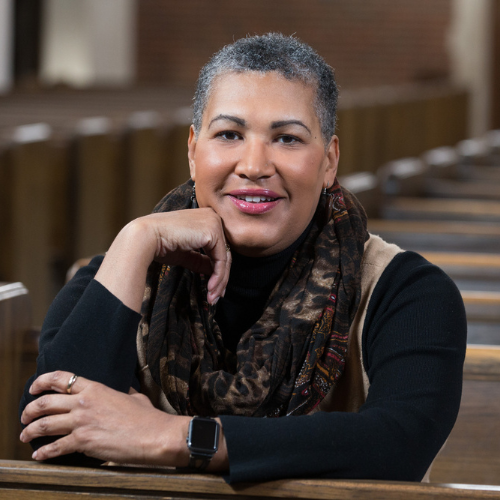What a year we have had in the last week! Compelled to consider entirely new ways of “gathering” for corporate worship, we are inundated with headlines, updates, and tweets that read as if “church” can be cancelled like an outdated television series (can someone say cable TV?).
Pastors, remind your congregations we are the church who gather for corporate worship and scatter for service in the spheres of influence God affords us. Like ancient Israel shifting to synagogues when the Temple was destroyed, our worship of God is not limited to a building or space. Like the first disciples of Christ shifting their gatherings to secret places, the people of God continue to worship in Spirit though the venue may change. This time of physical distancing is an act of caring for our neighbor as we continue to acknowledge our dependence on the Creator of the Universe.
In these unpredictable times, one can expect inquiries about the good news. Is it possible to suggest, as did the ancient prophet Ezekiel, that the spirit of the Lord has brought us out and set us in the middle of the valley? This valley. A valley of disaster and death. Now don’t stop reading there.
Just last week we were reminded, by no less than Jesus himself, that we miss the point when we suggest that blindness (or disaster) is to be considered a curse from God. One should also recall the error of the counsel of Job’s friends, who sought to identify Job’s “sin.” Nonetheless, we find ourselves in this moment in a valley. Is this the place to which God has led us? May our answer first be Ezekiel’s: “O Lord GOD, you know” (Ezekiel 37:3). As you prepare this week, acknowledge our need for a word from the Lord, and linger in a posture of listening.
It might seem tempting to shift away from the lectionary this week, especially if there has been a death in the congregation or someone is gravely ill. How does one lead with a text that says Jesus hesitated when his healing hand could have saved? But if God is not good in the midst of sickness and sorrow, why acknowledge success and serenity as divine grace? Finding God’s presence in the storm might be more faithful than expressing gratitude when things seems to all be going the way we want.
Rehearse the disappointment and despair of Lazarus’ sisters. Rehearse the confusion and concern of the disciples. These may be the very posture of your listeners that should be affirmed this week. In your efforts to livestream encouragement, be intentional in offering empathy to those for whom Psalm 130 expresses the desperation of their hearts. From this position of shared misfortune, we can together watch and wait to see what the Lord is doing.
Now, the world is gravely afflicted by COVID-19. Alarms have also been raised by recent earthquakes around the world including California, Mexico, Papa New Guinea, Greece-Albania, and South Africa. Dismay can be detected in market fluctuations, budget deficits, and business closures. Panic is perceptible among those employees whose jobs require they remain in the midst of the pandemic. The world has become a village, and our siblings are desperate for a tangible pronouncement of the presence of God.
The events rehearsed in this week’s Gospel lesson are intimate. The key figures are friends and family. The desperation occurs inside the closed community, but it is shared by any person who has ever experienced longing, loss, and being let down. In your proclamation (whether it is livestreamed, pre-recorded, or written out), allow the echo to remain that the promise is carried from within the community beyond the community. We tell these stories so that the world might know. But do not ignore that these are the stories of a particular community.
Within this community called Christ-followers, Jesus had cultivated an intimacy that allowed Mary and Martha to expect healing. The disappointment of the delay occurs within the expectation of a response. And even in this moment, they remain faithful. The complexity of emotions is real.
And there is the rub. Sometimes disappointment and faith coexist. Martha and Mary do not demand a fix. They continue believe Jesus is the source of their hope. So—the focus of the text is not a pronouncement of survival principles, but signs of God’s faithfulness to restore life in this world permeated with death and destruction. The signs restore our capacity to see God’s faithfulness in the face of disaster.
Jesus will venture to the very place his life is most threatened, Jerusalem. There he encounters the very element that most threatens humanity, death. As we see Jesus’ sorrow, may we recognize the regret of God that creation is in agony. See God, seeing us, and grieving that the curse still reigns. For now.
Confusion is reasonable. God does not see as people see. Jesus is not stymied by the disciples’ defeatist attitude masquerading as bravado or by Martha and Mary’s disappointment masquerading as anticipation of a future hope. It will be from this intimacy that Jesus’ final sign of God’s presence and power will be exhibited.
In solidarity with a world where the threat of death is evident in political posturing, economic inequity, medical malpractice, individual isolation, regional rivalry, and denominational discord, God in Christ approaches the stench of our strife.
In faithfulness to God’s desire to give humanity abundant life, Jesus calls us by name. Jesus does not speak to the dead man, or the brother of the mourners, or the one buried by the community. Jesus calls to Lazarus.
This week do not be afraid to roll away the stones of hypocrisy and hype, governance and greed, fear and failure, disease and doubt:
- Only by facing the reality of this moment will your words witness to God’s life-giving grace.
- Only by that witness will the sign of resurrection be a confirmation of God with us.
- Only then will the testimony of the scattered church be a foretaste of the gathered community where there is life.
- Only if we tell this story will others come to believe in Jesus. Not because we fear death, but because we know what it means to live.
Working Preachers, this is our story. Tell it wherever and however God gives you a platform.

